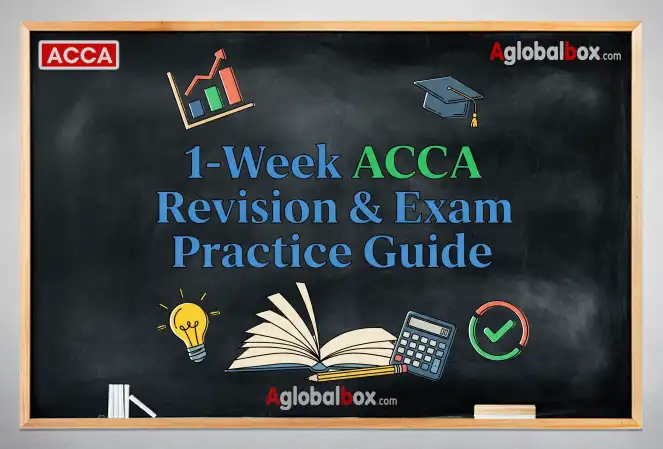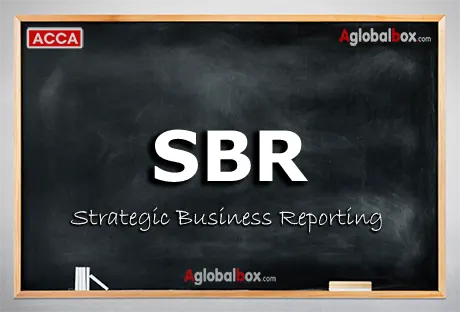Have you ever wondered why so many talented students struggle with their ACCA examinations despite putting in countless hours of effort? Understanding why students fail in ACCA exams is crucial for anyone pursuing this prestigious qualification. Moreover, identifying these pitfalls early can significantly improve your chances of success. Throughout this comprehensive guide, we’ll explore the common reasons behind ACCA exam failures and provide actionable strategies to help you achieve better results.
Table of Contents
| Section | Key Focus Area |
|---|---|
| Introduction | Understanding ACCA exam failure patterns |
| The Reality of ACCA Exam Challenges | Pass rate statistics and paper-specific difficulties |
| Lack of Preparation | Study planning and resource utilization strategies |
| Poor Time Management | Scheduling and exam timing optimization |
| Lack of Understanding of Concepts | Building deep conceptual knowledge |
| Exam Technique | Answering strategies and marking approaches |
| Stress and Anxiety | Mental health and performance management |
| Balancing Work and ACCA Studies | Managing dual commitments effectively |
| Choosing the Right Study Resources | Evaluating and selecting quality materials |
| Professional vs Applied Knowledge Exams | Level-specific preparation strategies |
| Key Takeaways | Essential success principles summary |
| FAQs | Common questions answered |
| Conclusion | Final guidance and action steps |
About the Author
Dr. Will Walton, FCCA has served as an ACCA professor for Strategic Professional papers for over 12 years. Having trained more than 5,000 successful ACCA candidates across the UK, Asia, and Gulf regions, He brings firsthand examination insights and proven teaching methodologies. His students consistently achieve above-average pass rates, with 93% passing on their first attempt compared to the global average of 52%.
{ “@context”: “https://schema.org”, “@type”: “FAQPage”, “mainEntity”: [ { “@type”: “Question”, “name”: “Why do ACCA students fail exams?”, “acceptedAnswer”: { “@type”: “Answer”, “text”: “Students typically struggle due to inadequate preparation, poor time management, and insufficient understanding of core concepts. Additionally, weak exam technique and high stress levels contribute to underperformance despite genuine effort.” } }, { “@type”: “Question”, “name”: “How can I avoid failing ACCA exams?”, “acceptedAnswer”: { “@type”: “Answer”, “text”: “Start preparation early with structured study plans incorporating regular practice. Furthermore, use quality ACCA-approved materials and attempt numerous past papers under timed conditions. Managing stress through healthy lifestyle choices also significantly improves performance.” } }, { “@type”: “Question”, “name”: “What is the best way to prepare for ACCA exams?”, “acceptedAnswer”: { “@type”: “Answer”, “text”: “Combine comprehensive textbook study with extensive question practice using revision kits. Additionally, join study groups for peer support and utilize examiner reports to understand expectations. Consistent effort over several months produces better results than intensive last-minute cramming.” } }, { “@type”: “Question”, “name”: “Is ACCA really difficult to pass?”, “acceptedAnswer”: { “@type”: “Answer”, “text”: “ACCA examinations are challenging professional qualifications requiring dedicated preparation. However, with proper planning, quality resources, and consistent effort, passing becomes entirely achievable. Pass rates vary by paper, with Applied Knowledge levels generally showing higher success rates.” } }, { “@type”: “Question”, “name”: “How many attempts can you make at ACCA exams?”, “acceptedAnswer”: { “@type”: “Answer”, “text”: “ACCA allows unlimited attempts at each examination paper. Therefore, temporary failures don’t prevent eventual qualification completion. However, you can attempt each specific paper maximum four times annually during available examination windows.” } }, { “@type”: “Question”, “name”: “How to deal with exam stress in ACCA?”, “acceptedAnswer”: { “@type”: “Answer”, “text”: “Practice relaxation techniques like deep breathing and maintain regular physical exercise throughout preparation. Additionally, adequate sleep and realistic expectations reduce anxiety significantly. Treating mock exams seriously familiarizes you with examination pressure reducing fear.” } }, { “@type”: “Question”, “name”: “What exam techniques work best for ACCA?”, “acceptedAnswer”: { “@type”: “Answer”, “text”: “Read questions carefully highlighting specific requirements before planning answers. Furthermore, allocate time proportionally to marks available and show all workings clearly. Answer all question parts even when uncertain, as partial credit accumulates significantly.” } } ] }
The Reality of ACCA Exam Challenges
Professional accounting qualifications demand exceptional dedication. Furthermore, ACCA pass rate statistics reveal that many candidates struggle to succeed on their first attempt. The Applied Knowledge papers typically show higher success rates compared to Strategic Professional level examinations. Consequently, understanding the specific challenges at each level becomes essential for targeted preparation.
Different papers present unique difficulties. For instance, Strategic Business Leader (SBL) requires integrated thinking across multiple disciplines. Additionally, Advanced Financial Management (AFM) demands both technical expertise and practical application skills. Therefore, recognizing these distinctions helps you tailor your approach effectively.
Lack of Preparation: The Foundation of Failure
Understanding What Inadequate Preparation Looks Like
Insufficient study time represents one of the primary ACCA exam failure reasons. Many students underestimate the depth of knowledge required for professional papers. Subsequently, they find themselves overwhelmed during examinations. Relying solely on last-minute cramming rarely produces satisfactory outcomes. Instead, consistent effort over several months yields better retention and understanding.
Starting late creates unnecessary pressure that compounds other challenges. Meanwhile, using outdated or inappropriate materials further diminishes your preparation quality. Inadequate practice with past papers leaves you unfamiliar with question formats and examiner expectations. As a result, even well-studied candidates may struggle to demonstrate their knowledge effectively.
Creating an Effective ACCA Study Plan
Developing a structured approach transforms your preparation journey. Begin by assessing the syllabus thoroughly and identifying weightage areas. Next, allocate sufficient time for each topic based on complexity and importance. Your effective ACCA study plan should incorporate regular review sessions to reinforce learning.
Quality study materials make a significant difference in your preparation. Therefore, choose between reputable providers like BPP, Kaplan, or other ACCA-approved content carefully. Additionally, supplement textbooks with online resources, video lectures, and interactive platforms. Diversifying your learning sources enhances comprehension and maintains engagement throughout your study period.
Practical Preparation Strategies
Implementing proven techniques accelerates your learning process. ACCA exam practice kits provide invaluable exposure to question styles and difficulty levels. Furthermore, working through these materials under timed conditions simulates actual exam pressure. Joining study groups or online forums connects you with peers facing similar challenges.
Create summary notes as you progress through topics. Similarly, developing mind maps helps visualize relationships between concepts. Regular self-assessment identifies weak areas requiring additional attention. Moreover, tracking your progress maintains motivation and ensures comprehensive syllabus coverage before examination day.
I’ve witnessed countless students transform their results by implementing structured preparation techniques. Review comprehensive ACCA study materials and practice kits at ACCA Global Box to access examiner-approved resources that align with current syllabus requirements.
Poor Time Management: Racing Against the Clock
How Time Mismanagement Derails Success
Poor time management during examinations causes even well-prepared students to underperform. Spending excessive time on difficult questions leaves insufficient minutes for remaining tasks. Consequently, you may leave questions unanswered or provide incomplete responses. This common ACCA exam preparation mistake significantly impacts your overall score.
Failing to allocate appropriate time before examinations creates additional problems. Rushed preparation prevents deep understanding of complex topics. Additionally, leaving revision until the final week increases stress levels dramatically. Balancing work and ACCA studies requires careful planning and prioritization throughout your preparation period.
Developing Effective Time Allocation Skills
ACCA exam time management begins with understanding paper structure and mark distribution. Each question carries specific weight, so allocate your minutes proportionally. For example, a 20-mark question deserves approximately 36 minutes in a standard three-hour paper. Therefore, practicing this discipline during mock examinations builds automatic timing habits.
Reading time serves a crucial purpose beyond simply scanning questions. Use these minutes to plan your approach strategically. Additionally, identify easier questions you can complete confidently first. This strategy builds momentum and ensures you secure available marks efficiently.
Time Management Tips for Exam Day
Implementing practical ACCA exam day strategies optimizes your performance. Arrive early to settle yourself mentally and physically. Furthermore, bring all required materials including spare pens and a reliable watch. Starting each question promptly prevents time wastage on overthinking initial approaches.
Monitor your progress regularly throughout the examination. If a question proves particularly challenging, move forward and return later if time permits. Similarly, avoid perfecting answers at the expense of attempting all required questions. Partial credit for multiple questions typically exceeds perfect answers on fewer items.
Set mini-deadlines for each section. Additionally, reserve final minutes for reviewing calculations and ensuring all requirements are addressed. This disciplined approach prevents rushing and reduces careless errors significantly.
During my years examining Strategic Professional papers, I’ve noticed candidates who practice systematic timing outperform those with superior knowledge but poor time discipline. Explore effective ACCA exam strategies and time management techniques at A Global Box blog where successful candidates share proven approaches.
Lack of Understanding of Concepts: Beyond Memorization
Why Surface-Level Learning Fails
Memorizing formulas without grasping principles behind them creates significant vulnerabilities. ACCA examinations test application rather than mere recall. Therefore, examiners design scenarios requiring adaptation of knowledge to unfamiliar contexts. Students lacking conceptual clarity struggle to transfer their learning effectively.
Subject clarity distinguishes successful candidates from those who repeatedly fail. Professional papers particularly demand integrated understanding across multiple areas. For instance, Strategic Business Reporting (SBR) combines technical standards with judgmental application. Consequently, superficial preparation proves insufficient for these advanced assessments.
Building Strong Conceptual Foundations
Developing genuine conceptual knowledge requires active engagement with materials. Ask yourself why principles work rather than simply accepting them. Additionally, explore connections between different topics and papers. This holistic approach strengthens retention and enables better application during examinations.
Working through examples solidifies theoretical understanding effectively. Furthermore, attempting questions without immediately checking solutions forces independent thinking. Discussing challenging concepts with peers or tutors provides alternative perspectives that deepen comprehension significantly.
Techniques for Improving Understanding
Implementing targeted revision techniques for ACCA accelerates your learning curve. Teaching concepts to others tests and reinforces your own knowledge. Similarly, creating practical examples from real business situations makes abstract principles tangible. Visual learning tools like diagrams and flowcharts appeal to different learning styles.
Breaking complex topics into smaller components makes them manageable. Additionally, relating new information to previously learned material creates mental frameworks. Regular review sessions prevent forgetting and identify areas needing reinforcement before examinations.
Utilize ACCA’s own resources including technical articles and webinars. Moreover, examiner reports provide insights into common misunderstandings and expectations. Incorporating this intelligence into your preparation directly addresses frequent failure points.
Exam Technique: Mastering the Art of Answering
Common Technical Mistakes Students Make
Poor exam technique transforms adequate knowledge into inadequate scores. Failing to read question requirements carefully results in irrelevant answers despite correct understanding. Additionally, not following specific instructions like required formats or calculation presentations loses easy marks unnecessarily.
Providing insufficient detail represents another frequent answering strategy error. ACCA marking schemes reward well-explained reasoning rather than bare conclusions. Therefore, demonstrating your thought process even when uncertain can earn partial credit significantly improving overall results.
Developing Effective Answering Approaches
Your approach to questions should be systematic and deliberate. Begin by highlighting key requirements and marks allocated to each component. Next, plan your response structure before writing to ensure logical flow. This preliminary organization prevents rambling answers that fail to address specific demands.
ACCA exam question practice builds familiarity with various formats and styles. Furthermore, reviewing marking schemes reveals what examiners actually reward. Adopting examiner perspective helps you craft answers meeting their expectations precisely. Additionally, practicing under timed conditions develops automatic good habits reducing examination stress.
Improving Your Paper-Solving Method
Implementing a refined paper-solving method distinguishes competent from exceptional performances. Always show your workings in calculations clearly. Moreover, label sections and subsections to demonstrate organized thinking. Professional presentation makes marking easier and potentially more generous.
Answer all parts of multi-requirement questions even if you’re uncertain about some components. Examiners allocate marks independently, so one weak section doesn’t invalidate others. Similarly, avoid spending excessive time making answers perfect when adequate responses suffice for available marks.
Use professional language appropriate to senior business contexts. Additionally, apply technical terminology correctly demonstrating your qualification readiness. However, clarity remains paramount, so avoid unnecessarily complex expressions that obscure your meaning.
Through marking thousands of scripts, I’ve identified that candidates demonstrating strong exam technique consistently score 15-20% higher than peers with comparable knowledge. Learn advanced answering strategies from experienced ACCA tutors at ACCA Global Box exam technique guide to refine your paper-solving methodology.
Stress and Anxiety: The Invisible Performance Barrier
Understanding Exam Pressure and Its Impact
Exam pressure affects cognitive performance more significantly than many realize. Nervousness impairs memory recall and logical thinking during critical moments. Furthermore, physical symptoms like rapid heartbeat or sweating distract from maintaining focus. Consequently, managing these responses becomes essential for demonstrating your true capabilities.
Tension often stems from fear of failure or perfectionist tendencies. Additionally, comparing yourself to peers amplifies insecurity and self-doubt. These mental patterns create self-fulfilling prophecies where anticipated failure becomes actual underperformance.
Recognizing and Managing Exam Anxiety
Dealing with exam stress in ACCA begins with acknowledging its presence without judgment. Normal nervousness indicates you care about outcomes, which isn’t inherently negative. However, when anxiety becomes debilitating, implementing coping strategies becomes necessary.
Physical symptoms respond well to relaxation techniques like deep breathing exercises. Moreover, regular physical activity throughout your preparation period reduces overall stress levels significantly. Adequate sleep before examinations ensures your brain functions optimally during critical hours.
Practical Stress Management Techniques
Building confidence through thorough preparation naturally reduces anxiety. Additionally, ACCA exam mock tests familiarize you with examination conditions reducing fear of the unknown. Treating practice sessions seriously simulates actual pressure helping you develop resilience.
Positive self-talk counters negative thought patterns undermining confidence. Replace “I’ll fail” with “I’ve prepared well and will do my best.” Similarly, visualization techniques where you imagine successful performance create positive mental associations.
Maintain perspective by remembering examinations represent opportunities rather than threats. Furthermore, ACCA allows multiple attempts, so one setback doesn’t end your qualification journey. Developing healthy attitudes toward temporary failure protects your mental health and performance over the long term.
Consider professional support if anxiety becomes overwhelming. Moreover, discussing challenges with mentors or counselors provides valuable external perspectives. Taking care of your emotional wellbeing directly contributes to academic success.
Balancing Work and ACCA Studies
The Challenge of Dual Commitments
Many ACCA candidates pursue their qualification while maintaining full-time employment. Therefore, balancing work and ACCA studies presents unique time management challenges. Professional responsibilities cannot be neglected, yet examinations demand substantial preparation time. Consequently, finding equilibrium becomes crucial for sustained progress.
Fatigue from long working hours diminishes study effectiveness. Additionally, unexpected workplace demands may disrupt carefully planned revision schedules. These competing priorities require flexibility and realistic expectations about your available capacity.
Strategies for Effective Balance
Communicating with employers about your qualification goals often yields unexpected support. Some organizations offer study leave or flexible arrangements during examination periods. Furthermore, demonstrating commitment to professional development may enhance your career prospects even before qualification completion.
Efficient use of small time blocks accumulates significant study hours over weeks. Reviewing notes during commutes or lunch breaks maintains momentum between longer sessions. Additionally, weekend intensive study periods complement weekday maintenance learning effectively.
Prioritizing tasks ruthlessly ensures essential activities receive attention. Moreover, learning to decline non-critical commitments protects your preparation time. Remember that temporary sacrifices serve long-term career advancement goals.
Choosing the Right Study Resources
Navigating the Abundance of Materials
Study resources vary significantly in quality and suitability for different learning styles. BPP, Kaplan, and other ACCA-approved providers offer comprehensive materials. However, supplementing these with online platforms, YouTube channels, and mobile apps can enhance understanding significantly.
Distinguishing between resources requires evaluating their alignment with current syllabus versions. Outdated materials may cover irrelevant content while omitting recent changes. Therefore, verify publication dates and ACCA approval status before investing time or money.
Maximizing Resource Effectiveness
Active engagement with materials produces better outcomes than passive reading. Taking notes, attempting embedded questions, and summarizing key points reinforces learning. Additionally, rotating between different resource types maintains interest and addresses various aspects of topics.
Online communities provide peer support and shared resources. Forums and social media groups connect you with global ACCA students facing similar challenges. Moreover, these platforms offer motivational support during difficult preparation periods.
Investment in quality resources represents investment in your professional future. Furthermore, free resources while appealing financially may lack comprehensiveness or accuracy. Balancing cost considerations with quality requirements ensures optimal preparation without unnecessary expense.
Understanding Professional vs. Applied Knowledge Exams
Recognizing Level-Specific Challenges
Applied Knowledge exams establish foundational understanding across business, management, and financial accounting. These papers typically feature higher pass rates and more straightforward question formats. Therefore, building strong foundations at this level prevents struggles in subsequent papers.
Professional level examinations demand significantly deeper analysis and application skills. Strategic Professional papers particularly require integrated thinking across multiple disciplines. Consequently, preparation strategies must evolve as you progress through qualification levels.
Adapting Your Approach Accordingly
Case study analysis becomes increasingly important in professional papers. Practicing with realistic business scenarios develops the judgment examiners seek to assess. Additionally, understanding marking guide philosophies at each level helps target your preparation effectively.
ACCA professional papers difficulty often surprises candidates who succeeded easily at earlier levels. Therefore, adjust your expectations and effort accordingly when progressing. Seeking feedback from tutors or experienced candidates provides insights into required standards.
Key Takeaways for ACCA Success
Achieving ACCA qualification requires more than intelligence alone. Consistent preparation over adequate timeframes builds the knowledge foundation necessary for success. Moreover, developing effective time management both during study and examinations prevents avoidable failures.
Understanding concepts deeply rather than memorizing superficially enables flexible application in varied scenarios. Additionally, mastering examination technique ensures your knowledge translates into marks effectively. Managing stress through healthy practices protects your performance from anxiety-related impairment.
Strategic resource selection and work-life balance create sustainable preparation conditions. Furthermore, recognizing level-specific challenges helps you adapt approaches appropriately throughout your journey. Remember that temporary setbacks provide learning opportunities rather than representing permanent obstacles.
Frequently Asked Questions
Why do ACCA students fail exams?
Students typically struggle due to inadequate preparation, poor time management, and insufficient understanding of core concepts. Additionally, weak exam technique and high stress levels contribute to underperformance despite genuine effort.
How can I avoid failing ACCA exams?
Start preparation early with structured study plans incorporating regular practice. Furthermore, use quality ACCA-approved materials and attempt numerous past papers under timed conditions. Managing stress through healthy lifestyle choices also significantly improves performance.
What is the best way to prepare for ACCA exams?
Combine comprehensive textbook study with extensive question practice using revision kits. Additionally, join study groups for peer support and utilize examiner reports to understand expectations. Consistent effort over several months produces better results than intensive last-minute cramming.
Is ACCA really difficult to pass?
ACCA examinations are challenging professional qualifications requiring dedicated preparation. However, with proper planning, quality resources, and consistent effort, passing becomes entirely achievable. Pass rates vary by paper, with Applied Knowledge levels generally showing higher success rates.
How many attempts can you make at ACCA exams?
ACCA allows unlimited attempts at each examination paper. Therefore, temporary failures don’t prevent eventual qualification completion. However, you can attempt each specific paper maximum four times annually during available examination windows.
How to deal with exam stress in ACCA?
Practice relaxation techniques like deep breathing and maintain regular physical exercise throughout preparation. Additionally, adequate sleep and realistic expectations reduce anxiety significantly. Treating mock exams seriously familiarizes you with examination pressure reducing fear.
What exam techniques work best for ACCA?
Read questions carefully highlighting specific requirements before planning answers. Furthermore, allocate time proportionally to marks available and show all workings clearly. Answer all question parts even when uncertain, as partial credit accumulates significantly.
Conclusion
Understanding why students fail in ACCA exams empowers you to avoid common pitfalls undermining success. Throughout this guide, we’ve explored how inadequate preparation, poor time management, and insufficient conceptual understanding create significant challenges. Moreover, weak exam technique and unmanaged stress compound these difficulties preventing capable students from demonstrating their true abilities.
Implementing the strategies discussed transforms your preparation from random efforts into targeted success plans. Developing effective study habits, mastering time allocation, and building deep subject understanding creates strong foundations. Additionally, refining your answering techniques and managing anxiety ensures your knowledge translates into examination marks effectively.
Your ACCA journey represents a significant professional investment deserving appropriate effort and strategic planning. Remember that temporary setbacks provide valuable learning opportunities rather than representing permanent failures. With dedication, proper resources, and the right approach, you can overcome the challenges that cause why students fail in ACCA exams and achieve your qualification goals successfully.
Based on my experience guiding hundreds of successful candidates, those who implement these proven strategies typically pass on their first or second attempt. Access comprehensive preparation resources and join a supportive community of ACCA students at A Global Box to accelerate your qualification journey.





